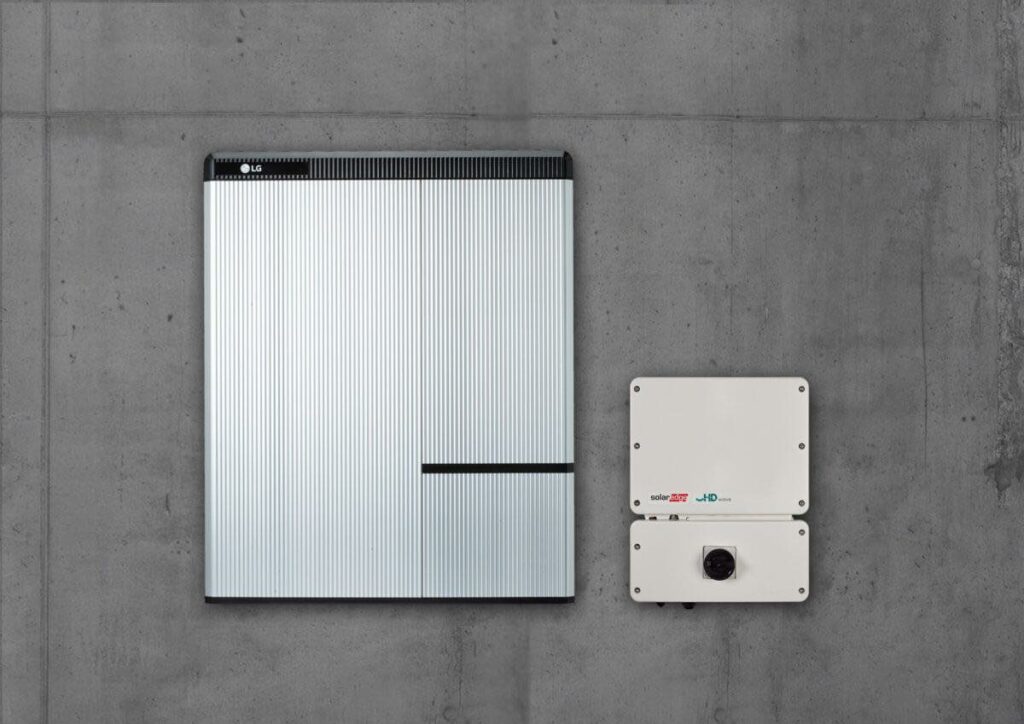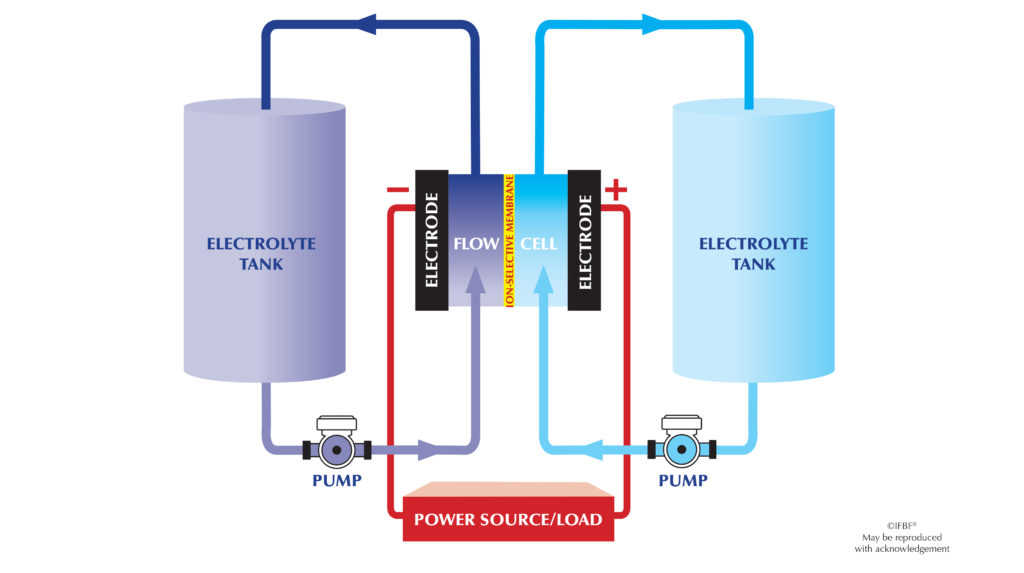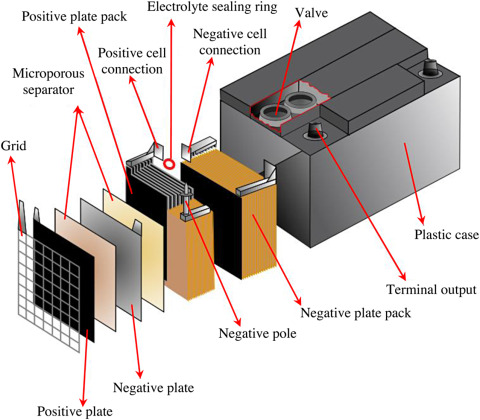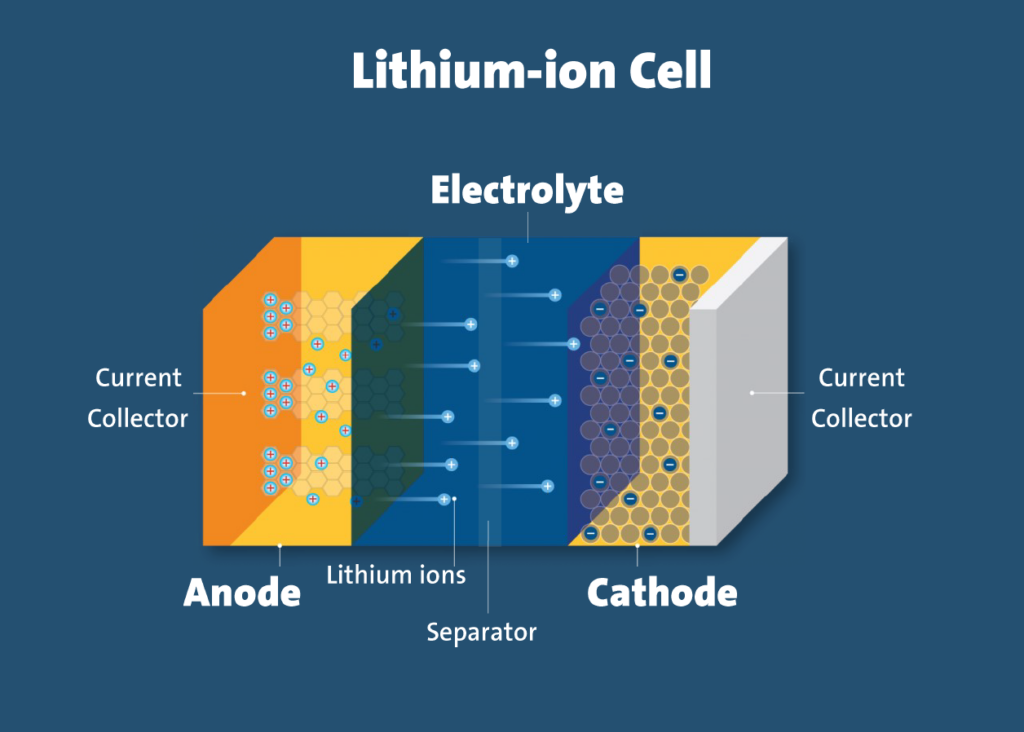Last update May 27th, 2024 at 11:28 am
In most cases, particularly for residential use, a solar battery lifespan will be between 5 and 15 years. Some types might even last for 25 years, like certain types of flow batteries.
The lifespan may differ from battery type to battery type. Different batteries often have a different number of expected cycles and depth of discharge (DoD).
In this guide, you will learn more about how long different home battery systems last!

What affects solar battery lifespan?
Buying a solar battery is a significant investment for most Australians, as the battery price is rather high. Because of this, you should aim to find a solar battery that can last for as long as possible.
Your choice of battery may affect how long you can expect to have it before it needs to be replaced. A high-quality lithium-ion battery may last longer than a low-quality battery. However, a number of different factors may affect the solar battery lifespan:
- Expected cycle life given by the manufacturer
- Depth of discharge
- Maximum energy throughput
- Usage (how often the battery is cycled)
- The useful life of the battery
What is the cycle life of a solar battery?
It is first and foremost the number of expected usage cycles that defines the expected solar battery lifespan.
Solar batteries come with an expected cycle life, which refers to the expected number of times the battery can be fully charged and discharged, to a certain discharge level.
One charge cycle can be described as the process of charging the solar battery fully and discharging a power amount that is equal to the battery’s full capacity one time.
Depth of discharge
The depth of discharge or DoD is also relevant, as this will tell you at which level the battery may be discharged compared to what its nominal capacity is.
In other words, the DoD will tell you what percentage of the battery’s capacity is possible to discharge without risking damaging the battery. If you have a 9.8 kW solar battery with a 95% depth of discharge, the usable battery capacity is 9.3 kWh.
Energy throughput
Many home battery systems come with a maximum limit of energy throughput, which is the total energy amount that can pass through the battery. This impacts your solar battery lifespan.
When the battery reaches a certain amount of energy throughput, the warranty might end – no matter the discharge level or number of cycles.
Usage
As most solar batteries have a certain number of expected cycles, the usage might affect how long the battery will last. How long it will take for you to fully discharge the battery, will of course depend on your energy consumption and the battery size.
The useful lifespan of a solar battery
All batteries degrade gradually. Solar batteries often have a certain “useful life”, which is reached when the battery no longer can meet its expected energy storage capacity. This is known as the solar battery lifespan. The battery may still be used but it is not as effective as it used to be.
Look for a beneficial solar battery warranty
When buying a solar battery, it might be a good idea to look for a battery with a long warranty. Why? Well, the warranty will indicate how long you can expect the battery to last. In most cases, home battery systems have a 10-year warranty in Australia. This is an important consideration when looking at the lifespan of a solar battery.
If the solar battery stops working before the warranty has ended, you might get a new battery from the manufacturer. However, remember that different conditions may end the warranty period sooner. The warranty usually expires when…
- The warrantied life of the solar battery expires
- You reach the energy throughput capacity of the battery
- Exhaustion of the cycle life is reached
Do you need to replace your battery before the solar panels?
Yes, in most cases it will be necessary to replace the solar battery system once or twice (or even more often) before you have to replace the solar panels. Most solar panels sold on the Australian market have an expected battery lifespan of 20 to 30 years.
Meanwhile, home battery systems have a much shorter lifespan – due to the nature of the battery.
How long do different solar battery systems last?
There are a number of different solar battery types on the market and some of them have a longer expected lifespan than others.
- Lead acid batteries: 3-5 years (1500-3000 cycles)
- Lithium-ion batteries: 10-15 years (6000 cycles)
- Flow batteries: 15-25 years (100% depth of discharge)



What home battery system will last the longest?
Most Australians with off-grid solar panel systems have a lithium-ion battery. These have a relatively long expected lifespan and may last for up to 15 years. A flow battery might last for even longer but is also more expensive.
When choosing a home battery system, you should consider price, how often you plan to cycle the battery and other factors. Make sure you use a CEC-accredited installer for obtaining quotes.